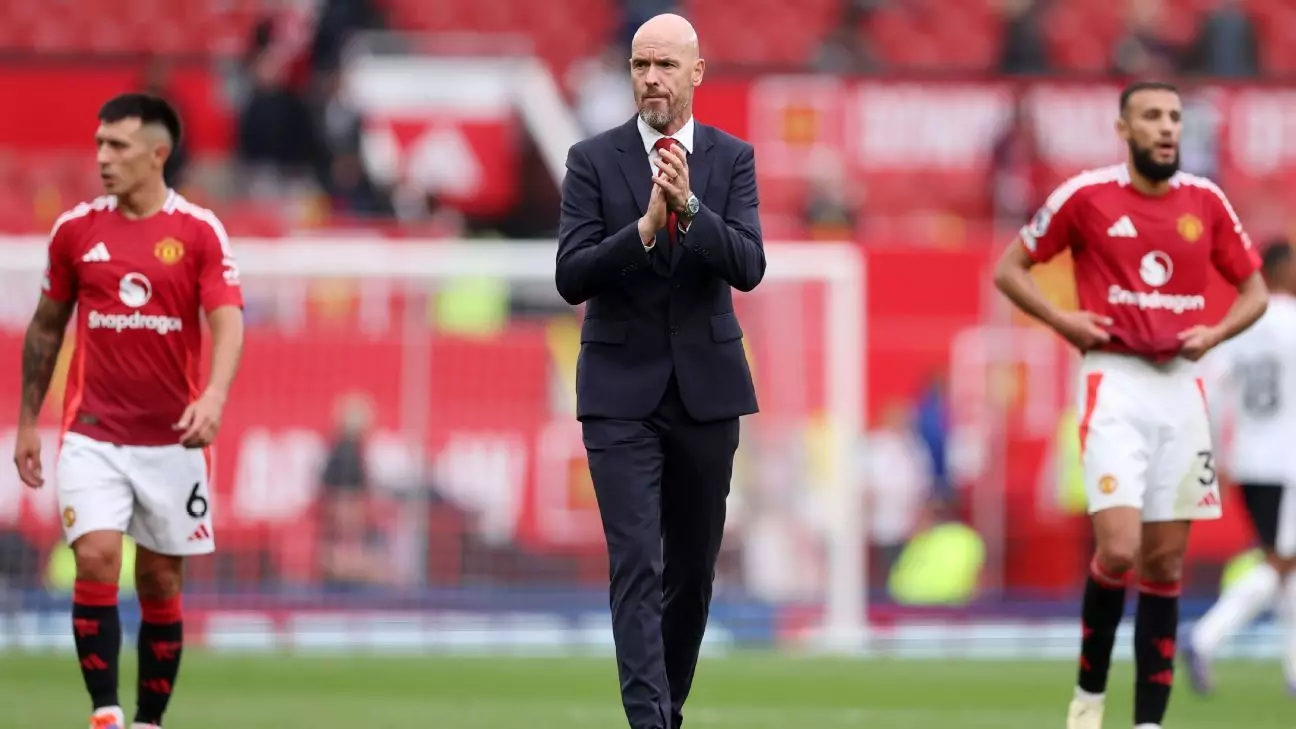Erik ten Hag finds himself navigating an increasingly treacherous landscape at Manchester United after a disappointing 3-0 defeat to Liverpool. This harrowing result has drawn scrutiny not only from fans but significantly from the club’s management, as the Dutch coach grapples with the consequences of poor performance. In the pressure-laden world of football, victories are the currency of respect and stability, and failing to secure them could undermine the confidence placed in Ten Hag by the club’s hierarchy.
The support from Manchester United’s CEO, Omar Berrada, and sporting director, Dan Ashworth, has served as a temporary lifeline for Ten Hag; both affirmatively labelled him the right leader at this critical juncture. However, such backing comes with an asterisk—Ten Hag himself acknowledged that faith in his leadership hinges on improved results. “In football, winning is non-negotiable,” he stated emphatically at a press conference preceding the upcoming match against Southampton. This sentiment reflects a fundamental truth about the sport; results create a feedback loop that shapes perception, often reducing complex management challenges to the binary of win or lose.
The new season has not unfolded as anticipated for Ten Hag, with two losses in the opening three fixtures. The contrasting narrative of last season, which ended on a high note with an FA Cup victory over Manchester City yet saddled with an eighth-place league finish, looms large. While it is essential to recognize the steps taken towards improvement, including securing an extension to his contract, the harsh reality asserts that results will ultimately dictate his fate. “It’s not just on me,” Ten Hag remarked when discussing the undercurrent of recent performances, pointing to the broader upheaval that has enveloped the club in terms of leadership and ownership changes.
By implying that performance cannot be wholly attributed to his strategies, Ten Hag effectively draws attention to the multifaceted nature of teamwork in football. The true challenges may lie deeper than tactical decisions or player selection; they may stem from a larger context, including a substantial overhaul in team dynamics. The rationale for change is valid, yet the necessity to deliver immediate results adds layers of complexity to his role.
In the spotlight of scrutiny, Ten Hag has also positioned himself as a staunch ally of his players, particularly in defending Matthijs de Ligt following a controversial substitution during a recent Netherlands match. Describing de Ligt as a “great personality,” he expressed his confidence in the player’s resilience and capability to rebound from adversity. This displays Ten Hag’s commitment not only to fostering individual confidence but also to strengthening team morale amidst rising tensions.
As the team prepares for a crucial match against Southampton, the imperative for results becomes even clearer. Ten Hag’s ability to steer Manchester United towards consistency and success rests on unifying the fractured elements within the squad, capitalizing on the raw talent at his disposal, and turning the club’s fortunes around. The sound of supporters’ discontent is reverberating, and the need to convert pressure into performance is now more urgent than ever. The road to recovery is fraught with challenges, but with the right focus on cohesion and results, Ten Hag may yet find the path to redemption at one of football’s most storied clubs.

